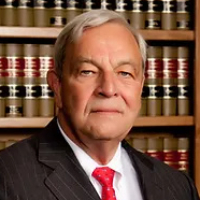Independence County, AR White Collar Crime Lawyers
Sponsored Law Firm
-
 x
x

Click For More Info:
-
The Law Offices of Richard L. Cooper, P.A.
848 Brickell Avenue Suite 800 Miami, FL 33131» view mapDWI/DUI, Drug Trafficking, Felony Nationally Ranked Top 40 Under 40
With Richard L. Cooper you can expect a trusted confidant who will work diligently to fully understand your case and determine a road map to help you regain control of your life.
800-756-2781
Not enough matches for Independence White Collar Crime lawyer.
Below are all Independence lawyers.
H. David Blair
✓ VERIFIEDAccident & Injury
H. David Blair is a practicing attorney in Arkansas specializing in accident and injury cases. David Blair completed legal studies at University of A... (more)
Barrett Moore
Accident & Injury, Divorce & Family Law, Criminal, Business, US Courts
Status: In Good Standing
Robert D. Stroud
Banking & Finance, Business, Personal Injury, Medical Malpractice
Status: In Good Standing
Tom Thompson
Admiralty & Maritime, Insurance, Workers' Compensation, Family Law
Status: In Good Standing
John C. Gregg
Lawsuit & Dispute, Industry Specialties, Business, Bankruptcy & Debt
Status: In Good Standing

 Richard L. Cooper Miami, FL
Richard L. Cooper Miami, FL AboutMiami Attorney at Law
AboutMiami Attorney at Law ServicesCriminal Defense
ServicesCriminal Defense

